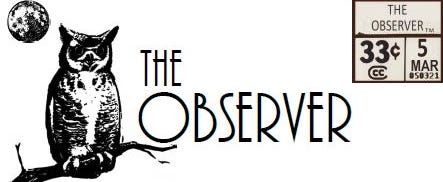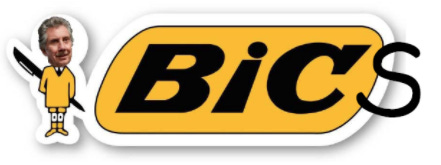Bigelow's Bucks Back BICS
The paranormal talk show host, Art Bell, routinely threatened his late night listeners that when he died, he would provide posthumous proof of the afterlife by haunting the radio waves. Bell passed away in 2018 at the age of 72, and by all accounts has not yet found his way onto the AM frequencies (except through syndicated replays). Perhaps one of his good friends and early benefactors, Robert T. Bigelow, will discover a better way to tune the afterlife dial. Bigelow recently established an institute to explore the nature of life after death and is offering $1.5 million in prize money to examine the survival of consciousness after the body dies.
The Bigelow Institute of Consciousness Studies (BICS) was created in 2020 to little fanfare until their contest was announced in January. Its purpose is objectively noble — one-man waging war against the lack of scientific research or meaningful analysis of a universally important but unexamined frontier. In order to “appeal to scientists, academics and others with advanced training,” Bigelow turned to the one thing he knew would appeal to everyone: money. BICS is paying handsomely for essays that compile “hard evidence” and outline a solid case for the endurance of human consciousness after ‘physical’ departure; awarding $500,000 to 1st place, $300,000 to 2nd, and $150,000 to 3rd. 11 additional finalists will take home $50k each.
Bigelow might be the only founder of a multi-billion dollar company who seems entirely disinterested in how he amassed his fortune — instead preferring to discuss the passion-projects that diminish it. After stashing away funds from his booming real estate and hotel ventures in the late 1980s, he happily threw them at unconventional topics that had fascinated him from a young age; namely space and the paranormal.
Art Bell fittingly described his buddy Bigelow as a “patron of open minds.” This is an apt description considering his history of spending serious money to seriously investigate the supernatural, without self- promotion or a desire to profit. In 1993, he sponsored the forerunner to what would later become Art Bell’s iconic paranormal talk-show, Coast to Coast AM. Years later, he created a panel of scientifically credentialed fringe-researchers to investigate the nature of UFOs and related phenomena under the moniker of the National Institute for Discovery Science (NIDS). He also quietly purchased the infamous ‘Skinwalker Ranch’ in Utah with the explicit purpose of measuring the many paranormal occurrences on the property.
BICS isn’t Bigelow’s first investment into the nebulous arena of human consciousness. In 1997, Robert and his wife donated $3.7 million to the University of Nevada, Las Vegas to initiate a Chair of Consciousness Studies. The gift was intended to stimulate academic interest in an emerging field of research that was desperately in need of scholarly refinement. As with BICS, Bigelow’s goal was to “unravel some of the mysteries of consciousness and ultimately benefit mankind.”
When talking about his deeply held interest in space travel, Bigelow is fond of saying that the quickest way for a billionaire to become a millionaire is to start an aerospace company. He started Bigelow Aerospace in 1999, calling his foray into the sector “somewhere between crazy and philanthropic.” He poured his wealth and enthusiasm into the project while pioneering a generation of private companies with their eyes on the cosmos.
Bigelow’s dream was to usher in an era of space tourism anchored by the ethos that the solar system should be accessible to everyone, not just government agencies. “NASA has a monopoly on American space,” he grumbled during a 1999 interview with Bell.
While the burgeoning Elon Musk had his sights set on reusable rockets and an affordable way to get to space, Bigelow went to work developing a tourist destination in the sky. If companies were going to send people to orbit, they would need places to stay. He planned a small network of expandable space stations that could be leased to different research groups or businesses. Bigelow has successfully launched several of his prototypes, including an “activity module” that was added to the International Space Station in 2016.
The prize money that BICS is offering afterlife researchers is reminiscent of Bigelow's $50 million ‘America’s Space Prize’ — a 2004 contest that required a lot more than an essay to win. Teams would have needed to send two crewed missions into orbit and dock with one of Bigelow Aerospace's inflatable stations. While the money was never claimed, it did inspire a number of upstarts (including SpaceX) to remain engaged in their pursuit to commercialize the stars. The large sum of cash Bigelow is putting up for the BICS competition is intended to do similar things in the under-studied field of human consciousness studies.
Bigelow turns 76 in May, making his latest endeavor hard to separate from the optics of time and age. After losing his father when he was young, Robert had to process the suicide of his son in 1992, followed by his grandson in 2011. Last February he lost his wife of 54 years. He'd been interested in life after death studies before, but admits her recent departure gave him a renewed focus.
The BICS contest will be judged by a panel of five renowned experts, including well-known paranormal researcher Dr. Harold Puthoff (former member of Bigelow’s NIDS and Tom Delonge’s To the Stars Academy) and New York Times contributor Leslie Kean (author of the NY Times articles disclosing government-run UFO programs).
Winners will be announced on November 1, 2021.






